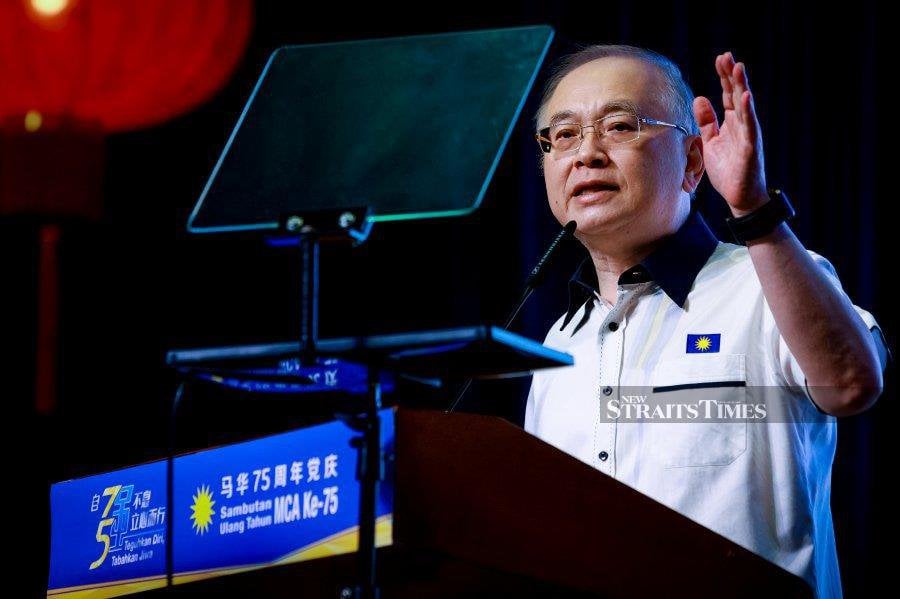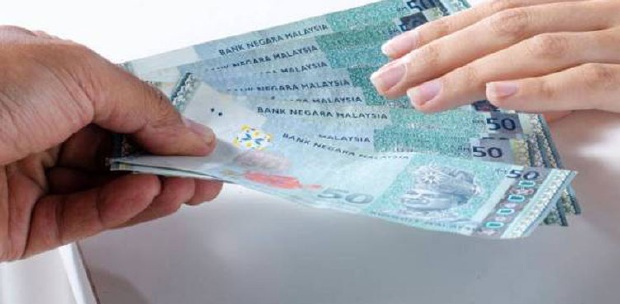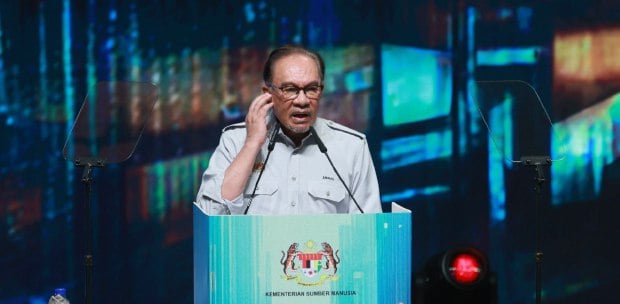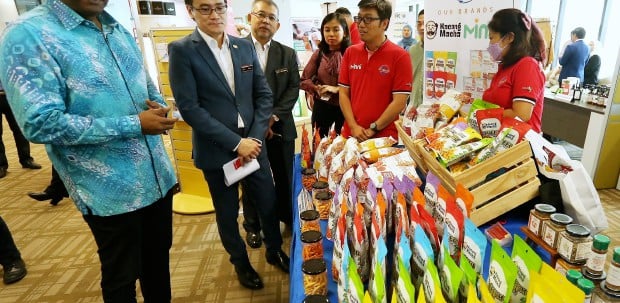KUALA LUMPUR: MCA president Datuk Seri Dr Wee Ka Siong said if the government intends to implement an RM3,000 minimum wage for graduates, they should cover the disparity between this figure and the current average wage.
Wee said if the prevailing average minimum wage for graduates stands at, for instance, RM2,300, the government ought to subsidise the remaining RM700 to ensure equitable treatment for graduates already in the workforce.
"If the government intends to undertake this responsibility, is it financially capable? This entails billions of ringgit for this purpose.
"Merely resorting to the sale of assets from Khazanah Nasional and other government-linked companies accumulated during the Barisan Nasional era, as well as relying on dividends from Petronas, does not present a viable long-term solution," he said in a video shared on his Facebook page.
He said it is essential for the government to implement the proposal outlined in the Fiscal Outlook 2024 report by the Finance Ministry.
This entails reintroducing the Goods and Services Tax, which he said could significantly bolster the economy while mitigating tax evasion.
Wee, who is Ayer Hitam member of parliament, said when introducing a minimum wage for graduates, regional variations must be considered.
"We shouldn't adopt a one-size-fits-all approach of an RM3,000 minimum wage across all areas in Malaysia, given the varying cost of living.
"For instance, comparing Jeli to Shah Alam, the cost of living is different. Thus, the minimum wage should be adjusted according to the locality."
He added that the government needs to recognise the contributions of skilled and experienced workers who lack formal academic qualifications.
"We must ensure fairness to workers without degrees, particularly with the government's push for Technical and Vocational Education and Training (TVET), emphasising competency based on skill training.
"In Malaysia, many sectors value skills and experience as essential criteria, which should not be disregarded. Experienced and skilled workers often play pivotal roles compared with fresh graduates.
"Hence, if this proposal is to be implemented, wages for skilled and experienced workers should also be raised, with the government taking these differences into consideration."
Previously, the media reported that Higher Education Minister Datuk Seri Dr Zambry Abd Kadir said the minimum wage for university graduates, set at RM3,000, is on the table for discussion.
He said the matter is in the early stages of discussion between the Economy Ministry and the Human Resources Ministry, and that a white paper proposal will be presented.
On March 14, Human Resources Minister Steven Sim Chee Keong said the government would review the minimum wage this year, considering the views of both employers and employees.
He said the review would be based on the National Wages Consultative Council Act 2011.





